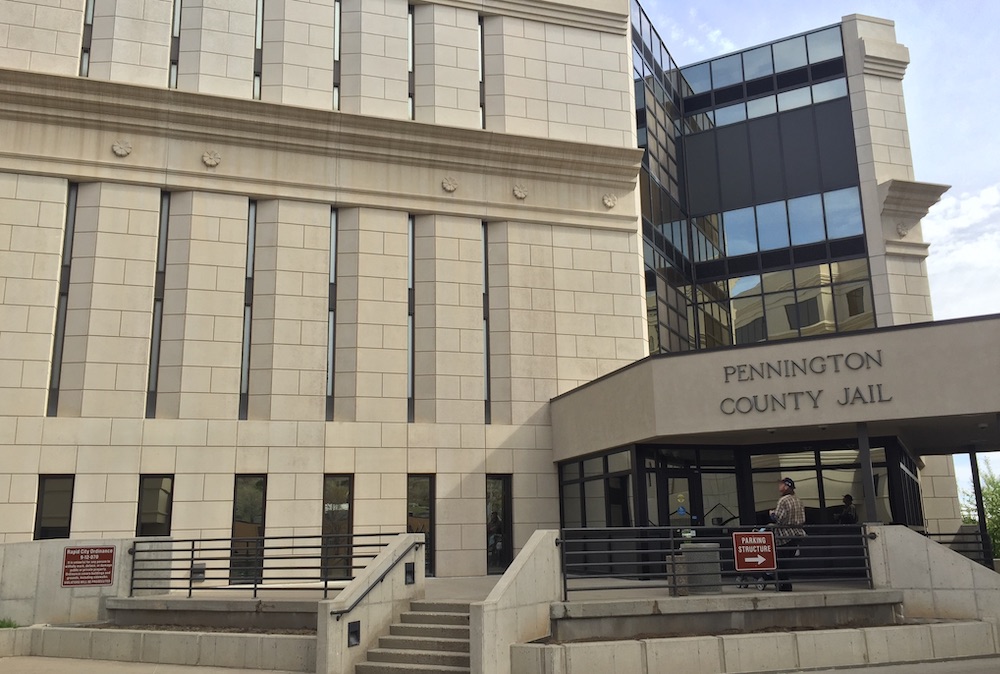
- Details
- By Darren Thompson
RAPID CITY, S.D.—On Wednesday, the Pennington County Sheriff’s Office (PCSO) announced that a Native American male, age 56, died after he was booked in the county jail on Tuesday evening. The man’s name hasn’t been released yet, but he was booked into the Pennington County Jail on Tuesday evening at approximately 6:23 p.m. for disorderly conduct.
The PCSO said corrections staff found the man dead in his cell around 1:45 a.m. The PCSO said a Wednesday morning autopsy suggests the man died of natural causes, but final results of his death are pending.
This isn’t the first death of a Native American person while in custody at the Pennington County Jail. American Indians make up 9 percent of Pennington County’s population, according to census data.
On November 16, 2022, a 19-year-old Oglala Lakota woman’s heart stopped while in custody at the Pennington County Jail, 5 days after giving birth by cesarean section at a nearby hospital. She was resuscitated by paramedics and sent to the local hospital, where she spent two weeks on a ventilator. After multiple MRI scans that revealed that the young woman had no signs of life, her family removed her from life support and she passed on December 2.
The young woman’s name was Abbey Steele, and she was booked in the county jail for missing court appearances from a drug-related charge more than a year before her arrest in November.
The cause of Steele’s health condition while in custody is currently under investigation by South Dakota’s Division of Criminal Investigation.
Native News Online reported in March 2021 of another Oglala Lakota woman who nearly died while in custody for warrants related to driving under the influence (DUI). She told Native News Online that she was severely ill and her temperature rose to 107 degrees, causing her to faint in her cell. She was later sent to the hospital, where she spent more than two weeks recovering.
If a detention center fails to provide medical care and that leads to health complications, the government, negligent staff and private health care providers servicing prisons can be liable. Under established laws, prisoners and detainees have a right to adequate medical care and don’t lose that right when they go to jail.
Medical negligence is often underreported in America’s jails and prisons for a lot of reasons — privacy, funding and policy preventing law enforcement agencies from communicating with the public.
All deaths of people in custody are automatically turned over to the state’s Division of Criminal Investigation.
This is a developing story.
More Stories Like This
Native News Weekly (August 25, 2024): D.C. BriefsUS Presidents in Their Own Words Concerning American Indians
Native News Online Marks 15 Years of Warrior Journalism
I’m a Minneapolis Postal Worker. This Is What I Saw.
Next on Native Bidaské: Inside Dark Winds with the Cast of Season 4
Help us defend tribal sovereignty.
At Native News Online, our mission is rooted in telling the stories that strengthen sovereignty and uplift Indigenous voices — not just at year’s end, but every single day.
Because of your generosity last year, we were able to keep our reporters on the ground in tribal communities, at national gatherings and in the halls of Congress — covering the issues that matter most to Indian Country: sovereignty, culture, education, health and economic opportunity.
That support sustained us through a tough year in 2025. Now, as we look to the year ahead, we need your help right now to ensure warrior journalism remains strong — reporting that defends tribal sovereignty, amplifies Native truth, and holds power accountable.
 The stakes couldn't be higher. Your support keeps Native voices heard, Native stories told and Native sovereignty defended.
The stakes couldn't be higher. Your support keeps Native voices heard, Native stories told and Native sovereignty defended.
Stand with Warrior Journalism today.
Levi Rickert (Potawatomi), Editor & Publisher

